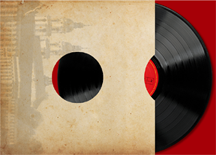The LSO Live LSO/Rattle recording of Bruckner 4, in the latest Cohrs edition of the 1878 - 1881, which I bought on release, is indeed a great one, and quite an advance in its subtlety of expression, musical flow and tonal range upon Rattle’s earlier Berlin reading, which always sounded acoustically compromised. This new release is certainly the most mature, fully realised Bruckner we’ve had from him.
This is not of course the first release to included several versions or variants. As recently as 2021, Jakob Hrusa and the Bamberg SO released “The Three Versions”, which goes further and includes flowing, warmly-toned and recorded complete accounts of the 4ths of 1874, 1878-81 and the first published edition of 1888. This last edition is important as it is the one that the work became known by, used by Knappertsbusch and Furtwangler (even after the issue of the Haas edition of 1878-81) if sometimes with, in Furtwangler’s case, his own adjustments. There is another very good version of 1888 (ed Korstvedt with detailed notes) by Osmo Vanska on BIS.
Disc 2 on the Rattle release contains music all Brucknerians should know, as the original scherzo is a compellingly mysterious and dramatic piece, much darker than its replacement, and unlike anything else in Bruckner; for me it relates closely to the musical daring and adventure he showed in the extraordinarily original 1872 2nd and 1873/4 3rd. I’ve always been surprised at Simpson’s brusque dismissal of it.
The “Volksfest” 4th finale, a structurally simpler, lighter conception of the work at that point (1878, may well broaden your understanding of the very complex and challenging finale structure in later versions. The longer 1878 andante is also very beautifully performed, one of the set’s highlights.
*****
I was disappointed with some aspects of Osborne’s review, especially his condescending and dated comments about a type of listener he calls “the general collector”, advising them, or us, to “forget editions”. Scholars like Korstvedt, Cohrs and Carragan have worked for years to produce authoritative editions of the Bruckner Symphony versions (and endlessly helpful commentaries upon them), all of which have since been recorded by many conductors, and are there to enjoy, in the listening; they are absolutely not some abstract textual study; and go far beyond the concept of “work-in-progress”. The 1874 4th, for example, can be a very exciting experience if you take a little trouble to get to know it as a symphony sufficient unto itself.
If you love Bruckner, why wouldn’t you relish having more Bruckner to love? If you know 1878-81 well, hearing those familiar themes in so many differently detailed contrapuntal, structural and orchestrated contexts is a pleasure in itself. But if you want to take things further you can read the essay in William Carragan’s recent and magisterial ”Anton Bruckner: Eleven Symphonies”, the so-called “Red Book”, (admittedly an expensive import-only) which has an excellent, highly detailed and exemplified piece on the 4th and its evolution. Of course, there are also several concise and very helpful summaries of the Bruckner Versions’ chronology and evolution online.
This is not of course the first release to included several versions or variants. As recently as 2021, Jakob Hrusa and the Bamberg SO released “The Three Versions”, which goes further and includes flowing, warmly-toned and recorded complete accounts of the 4ths of 1874, 1878-81 and the first published edition of 1888. This last edition is important as it is the one that the work became known by, used by Knappertsbusch and Furtwangler (even after the issue of the Haas edition of 1878-81) if sometimes with, in Furtwangler’s case, his own adjustments. There is another very good version of 1888 (ed Korstvedt with detailed notes) by Osmo Vanska on BIS.
Disc 2 on the Rattle release contains music all Brucknerians should know, as the original scherzo is a compellingly mysterious and dramatic piece, much darker than its replacement, and unlike anything else in Bruckner; for me it relates closely to the musical daring and adventure he showed in the extraordinarily original 1872 2nd and 1873/4 3rd. I’ve always been surprised at Simpson’s brusque dismissal of it.
The “Volksfest” 4th finale, a structurally simpler, lighter conception of the work at that point (1878, may well broaden your understanding of the very complex and challenging finale structure in later versions. The longer 1878 andante is also very beautifully performed, one of the set’s highlights.
*****
I was disappointed with some aspects of Osborne’s review, especially his condescending and dated comments about a type of listener he calls “the general collector”, advising them, or us, to “forget editions”. Scholars like Korstvedt, Cohrs and Carragan have worked for years to produce authoritative editions of the Bruckner Symphony versions (and endlessly helpful commentaries upon them), all of which have since been recorded by many conductors, and are there to enjoy, in the listening; they are absolutely not some abstract textual study; and go far beyond the concept of “work-in-progress”. The 1874 4th, for example, can be a very exciting experience if you take a little trouble to get to know it as a symphony sufficient unto itself.
If you love Bruckner, why wouldn’t you relish having more Bruckner to love? If you know 1878-81 well, hearing those familiar themes in so many differently detailed contrapuntal, structural and orchestrated contexts is a pleasure in itself. But if you want to take things further you can read the essay in William Carragan’s recent and magisterial ”Anton Bruckner: Eleven Symphonies”, the so-called “Red Book”, (admittedly an expensive import-only) which has an excellent, highly detailed and exemplified piece on the 4th and its evolution. Of course, there are also several concise and very helpful summaries of the Bruckner Versions’ chronology and evolution online.



Comment